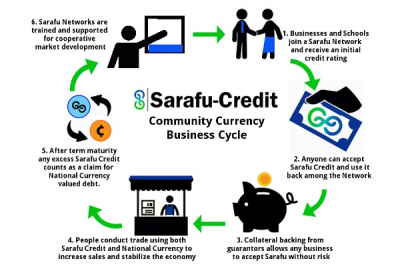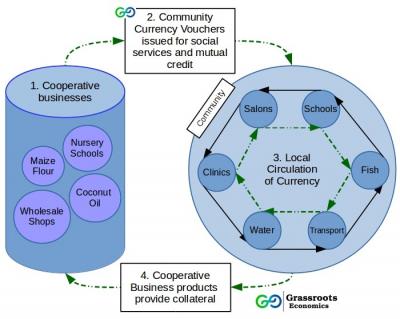New Year (2018), Will Be ______???
Please fill in your own “best” words.
John Hanno December 19, 2017
We’re approaching the one year mark for the trump administration. Depending on your position on the left – right political spectrum, the score board results are utterly controvertible.
Those on the Ult-Right, believe trump’s been a smashing success. They believe he’s been especially adept at seeming to overturn reams of Obama era accomplishments in the fields of healthcare, the environment, workplace protections, consumer protections and sensible regulations and legislation aimed at supporting all of the above and more.
Old School Republican’s, who use to populate the party’s middle – but have now been mostly relegated to center right history, are more than sick and tired of holding their noses, shaking their heads and making excuses for leaders who have traded principled opposition, thoughtful governance and true conservative ideals, for political “winning” at any cost. Those still in congress are retiring in unprecedented numbers before the chicken-shit comes home to roost.
Progressive and moderate democrats are atypically unanimous in expressing their shock and disgust at what this toxic administration and their spineless enablers in the Republi-con congress have substituted for constructive problem solving and effective leadership.

Trump’s best and brightest, who he touts to this day, have been found disqualified, fired, forced out, indicted, plead guilty or fled the trump train wreck; more than two dozen of these characters departed in just the first year.
Trump points to a Wall Street story praising trumps choices for the federal courts, even after his own Republi-cons in the senate judicial committee have had enough of his nominees who are beyond unqualified.
After Senate Chairman Grassley asked the White House to pull two nominees, they relented and withdrew the nominations of Brett Talley and Jeff Mateer.
Talley, who was picked to be a federal judge in Alabama, had never tried a case before in court and was rated by the American Bar Association (ABA), as unanimously unqualified.
Senators discovered after Talley was voted out of committee that he was married to White House counsel Donald McGhan’s chief of staff. Talley didn’t list his wife, on his Senate questionnaire, as a family member who might represent a potential conflict of interest.
Mateer, nominated for a seat on a federal district court in Texas gave speeches in which he compared homosexuality to bestiality and described transgender children as a part of “Satan’s plan.”
Even worse was the questioning of Matthew Petersen, nominated for the District Court for the District of Columbia, by Republican Sen. John Kennedy (La.), that went viral. It painfully revealed Petersen never conducted any type of trial, only “helped’ conduct a couple of depositions and couldn’t answer simple questions that a 2nd year law student could answer. He didn’t even know what a motion in limine’ is, a routine motion that every litigant must argue before every trial.
Polls are fairly consistent. Trump’s approval rating is a whopping 32%, lowest in U.S. history. 69% of us think Trump’s first year has been a complete bust and 52% think the country is headed in the wrong direction. 72% think trump has done something illegal or unethical concerning the “Russia / Trump thing.”
The closer special prosecutor Robert Mueller and his team get to the top of this dung heap, the more desperate Trump, the Ult-right wing-nuts and the Trump alternative reality TV and media, spew outrageous alternative fact theories. They’re now crying that America’s democratic institutions, and the liberal fake news media, are planning a coup of the Trump autocratic regime. Don’t fall for this Putinesque propaganda.

Trump and the pandering republi-con’s only accomplishment in the last year has been to make the Patient Protection and Affordable Care Act (Obamacare), more popular than ever.
And now this sham Republi-con tax bill transfers $1 trillion from America’s poor and middle class, to the wealthy and the well connected (like Trump, Corker and all of Trump’s cabinet) and stock holders, 30% of which are foreign investors.
Senator Corker, who just two weeks ago said he wouldn’t vote for this tax bill if it added one penny to the deficit, has now flip-flopped, even though the Repub’s have somehow made the bill worse by giving even more cuts to the wealthy and driving up the debt by $1.455 trillion (final CBO score).
Senator Rubio, who was holding out for a larger refundable portion of the child care credit in the bill, is now happy with the few crumbs (another $300) left over from the large swaths of chocolate cake given to the wealthy and corporations.
Trump, Mnuchin and the Republi-cons keep propagating the lies that this is tax reform that benefits primarily the middle class and will increase jobs and wages, boost the GDP and fully pay for itself.
Lets be clear; this is not legitimate tax reform. This is a whopping tax break for the wealthy and well connected, including for Trump Inc. and for all of his toxic predatory capitalist buddies. There are $1.6 trillion in tax breaks taken every year; this tax bill will only eliminate $400 billion of those tax breaks. And one of the biggest tax break scams, the carried interest exemption – granted mostly to hedge fund managers, survived this phony “Tax Reform.” Trump (dozens of times) and every Republi-con running in the campaign, repeatedly promised they would eliminate this tax dodge. A large portion of the eliminated tax breaks, fall on the 98% of voters who don’t contribute to the Republi-cons, especially in the blue states, who always contribute the most to the federal treasury.
This tax bill will clearly have winners and losers, something true thoughtful tax reform is designed to eliminate. No doubt we needed true tax reform. This was a perfect opportunity to level the fiscal “paying” field, to correct the inequities in the tax system built in over the last 3 decades, a chance to balance the burden between businesses and folks who faithfully pay their fair share, and predatory slugs like Trump and some corporations who enjoy all the benefits of America’s commons but refuse to pay even a small portion of their share to pay for them.

This tax hustle was rushed through in only 6 weeks, with no public hearings, no expert testimony from tax experts and without input from the Democrats, who represent a large majority of Americans. Is it any surprise that only 26% of Americans approve of this flim-flam and 50% believe their tax bills will actually go up. Experts say 83% of the tax cuts will go to the top 1% by 2027 and 60% go to the top 1/10 of 1%. But most of the Republi-cons in the house and every single Republi-con in the senate are all in. After the Obamacare fiasco, these incompetents need some kind of legislative win, even if it’s the worst tax bill in history. And many in congress, like Sen. Corker, have LLC’s that will benefit from this bill.
But where are all the conservative deficit hawks, who railed daily during the Obama administration when President Obama was forced to run up the debt, after the Republi-cons crashed the economy. All the experts told the President that if he didn’t bail out the banks, the deep Republi-cession would morph into a full blown depression. He also bailed out the auto industry, saving more than 200,000 good paying jobs. The auto companies paid back all of that money with interest. But those were mostly union jobs, so the predatory capitalist Republi-cons in congress opposed both bail-outs and to this day, demonize saving the auto industry and their unions.
It appears they have enough votes to pass the bill with just Republi-con votes, unless a few republicans find the courage to honor their oath of office and vote for what’s best for America instead of what’s best for themselves and their failed party. Will Sen. Corker vote for the Corkerkickback and against the people of Tennessee and against what he’s believed in about deficit spending during his entire senate career? Will Susan Collins renege on her promises to the middle-class folks back in Maine to protect their healthcare and tax benefits? Will Sen. Jeff Flake do the right thing for the folks back in Arizona, who depend on Medicaid, Medicare and Social Security?

The best thing John McCain could do to burnish his legacy is to stay in the hospital and take care of his treatments. Just on principle, after he made a point while addressing the senate during the ACA debate, about the Senate getting back to regular order and the necessity for bipartisanship, he should send a letter that could be read to the senate before they vote, asking them to vote their conscience, instead of their own best interests.
We know that before the ink is dry on this bill, the “starve the beast” Republi-cons and the deficit hawks just waking up after the holidays, will be back at work lickety-split, proposing cuts to middle-class American entitlements and safety net programs for the poor. But don’t be fooled. They will claim we need the savings for our crumbling infrastructure. But these sharks don’t want to contribute to those programs that could make America more competitive.
America is waking up to this shell game. And progressives should take a few 2017 bows. Victories in Virginia and New Jersey are good signs; and the remarkable victory in Alabama portend great things for the 2018 elections. Democratic Senator Doug Jones, from the deep red state of Alabama, is the real deal. Maybe with his help, we can slow down the damage this toxic administration is inflicting on our environment, our healthcare system, our economy, American labor, our public schools, the separation of church and state and our democratic institutions.
Mr. Jones and his energized supporters, especially African-American women and the 25,000 moderates and old school Republicans who refused to vote for Moore and wrote in someone else, overcame Bannon’s Trump miracle, who the white evangelical christian right still believes, is a gift from God; and who believe if “their God” can forgive all of trump’s transgressions and flaws, then who are they to question such a divine anointing. That is not true Christianity.
By 2027, 107% of the tax benefits in this bill will go to the top 20% of Americans. How can that be you ask? Because the bottom 80% will eventually get tax increases. This is a Republican donor payback tax gift to those who need it the least. The generous gifts to pass through real-estate businesses (many of which are owned by those in congress voting on the bill) will have unintended consequences and create an entire new tax avoidance industry. And more importantly, this will only worsen the growing income inequality for our middle-class and the poor. Hopefully those beguiled by the flim-flam will show their anger in November 2018.
If this tax bill is passed, those responsible for the provisions that enrich themselves and their benefactors and for the unrealistic promises, bold-faced lies, and unintended consequences, will be rewarded with losing control of congress in 2018.
Yes, I believe…This New Year (2018), Will Be a much better year for America! As long as we continue to Resist!
HuffPost
63 Percent Of Americans Believe Donald Trump Tried To Obstruct Russia Probe
Mary Papenfuss, HuffPost December 17, 2017
A new poll has found that 63 percent of Americans believe President Donald Trump has tried to “impede or obstruct” the investigations into Russian interference in the U.S. election and possible links between Trump’s campaign and the Kremlin.
A new poll has found that 63 percent of Americans believe President Donald Trump has tried to “impede or obstruct” the investigations into Russian interference in the U.S. election and possible links between Trump’s campaign and the Kremlin.
Additionally, 40 percent are convinced Trump did something “illegal” with Russia, according to the Associated Press-NORC poll, while 32 percent believe he has done something “unethical” concerning Russia.
Among those polled, 38 percent believe the Russia investigation is very or extremely important. Yet 54 percent are not confident that congressional investigations into the Russia issue will be fair and impartial. Forty-two percent aren’t confident that the Justice Department’s investigation led by former FBI director Robert Mueller will be fair and impartial.
The poll found the president had only a 32 percent approval rating, with 67 percent disapproving of the way Trump is handling his job as president. Those numbers mimic the findings of an earlier Pew Research poll.
That makes Trump the most unpopular first-year president on record.
The Russian results were based on surveys conducted Nov. 30 through Dec. 4 among 1,444 adults with a margin of error of plus or minus 3.7 percentage points.



 Retired physician Jeffrey Menn
Retired physician Jeffrey Menn The hour is late, but the fight is not over. Photographer: Andrew Harrer / Bloomberg
The hour is late, but the fight is not over. Photographer: Andrew Harrer / Bloomberg




 No wonder she doesn’t look happy. She screwed Mainers and herself.
No wonder she doesn’t look happy. She screwed Mainers and herself. Open sewage in rural Alabama has been blamed for spreading diseases like hookworm and E. Coli. Photo by Philip Alston/UN/Twitter
Open sewage in rural Alabama has been blamed for spreading diseases like hookworm and E. Coli. Photo by Philip Alston/UN/Twitter